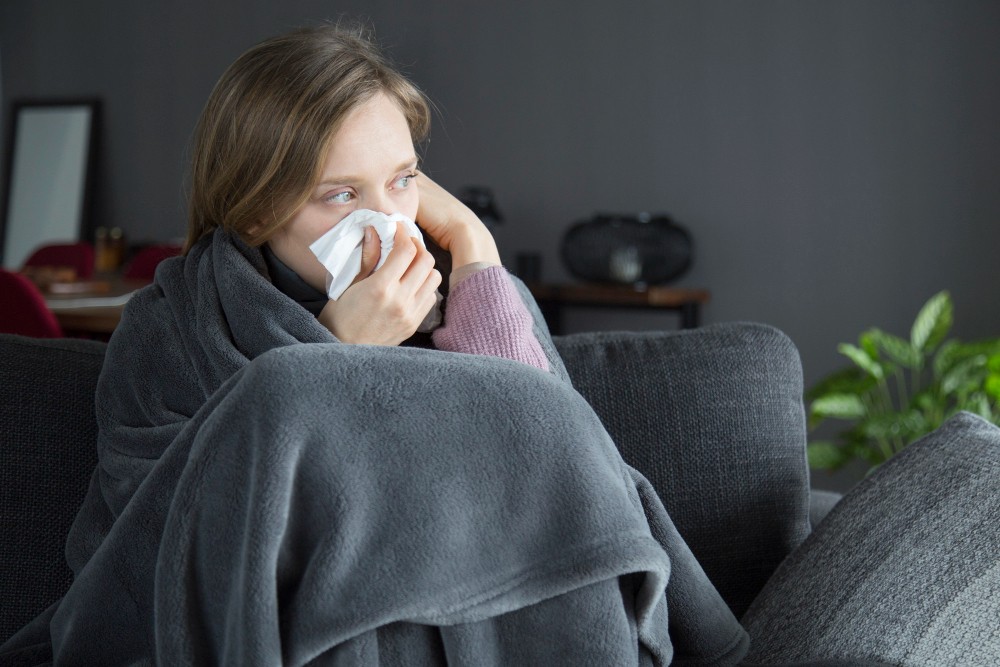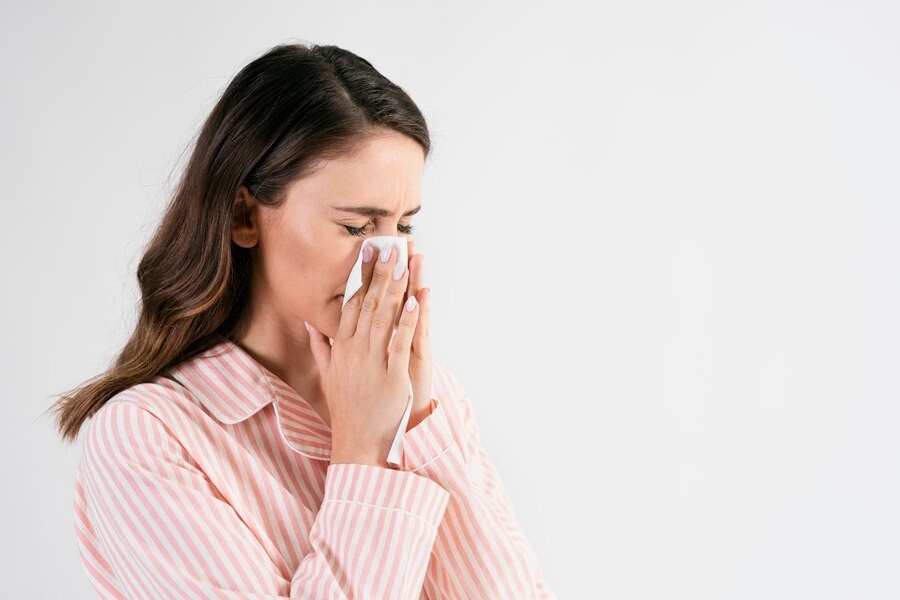The flu is a common illness that often arises during seasonal changes. However, certain individuals seem to catch the flu more easily, even outside of these transitions. Factors like lifestyle and environment play significant roles in determining how susceptible someone is to this illness.
Why Are Some People More Susceptible to the Flu?
The flu, caused by the influenza virus, is a highly contagious disease that targets the respiratory system, including the nose, lungs, and throat.
Symptoms can range from mild to severe, often presenting as fever, cough, sore throat, and a runny or stuffy nose.
Transmission occurs through droplets released into the air when an infected person talks, coughs, or sneezes. You can catch the flu by inhaling these droplets or by touching surfaces contaminated with the virus, as it can survive on hard surfaces for up to 48 hours.
Various factors influence a person's vulnerability to the flu, including environmental conditions, weather, immune strength, and personal habits. Individuals with weaker immune systems are particularly at risk. Below are some reasons why someone may be more prone to catching the flu:
Weather conditions
The influenza virus thrives in cold temperatures and dry air, making flu outbreaks more common during seasonal changes, such as the shift from dry to rainy weather. The rainy season often leads to people gathering indoors, which increases the likelihood of transmission.
Living in crowded areas
Residing in densely populated spaces, like dormitories or apartments, raises the chances of contracting the flu, particularly in settings with poor ventilation or inadequate hygiene practices.
Vitamin D deficiency
Low levels of vitamin D can make a person more susceptible to illnesses, including the flu. Studies indicate that a deficiency in this vitamin increases the risk of flu, COVID-19, and respiratory infections.
To boost vitamin D levels, consider regular morning sun exposure, eating vitamin D-rich foods, or taking supplements.
Unhygienic habits
The flu virus spreads easily through direct contact with contaminated surfaces. Touching dirty surfaces and then touching your nose or mouth increases the risk of infection.
Rarely washing your hands after contact with shared public surfaces further increases the risk of catching a flu.
Tips to Prevent Contracting Influenza Virus
While it’s possible to encounter the flu virus almost anywhere, you can take proactive steps to reduce the risk of infection:
- Get vaccinated against the flu regularly
- Wash hands frequently with soap and running water, or use hand sanitizer when necessary
- Wear a mask when feeling unwell
- Consume a balanced, healthy diet
- Avoid sharing utensils or personal items with others
- Manage stress effectively
- Ensure adequate sleep (7–8 hours daily)
- Stay hydrated by drinking plenty of water
- Sunbathe to boost vitamin D
- Engage in regular physical activity
Flu infections can lead to symptoms ranging from mild discomfort to severe illness. If you have concerns about the flu or its symptoms, consider consulting a doctor or using the Ai Care consultation service, which can be accessed by downloading the app via the App Store or Play Store.
Want more insights into other diseases? Click here!
- dr Hanifa Rahma
Mayo Clinic. Influenza (Flu). Available from: https://www.mayoclinic.org/diseases-conditions/flu/symptoms-causes/syc-20351719#
WebMD Editorial Contributors. (2023). What Causes the Flu?. Available from: https://www.webmd.com/cold-and-flu/what-causes-flu-viruses#1
Fletcher, J. (2023). How to stay healthy with a weak immune system. Available from: https://www.medicalnewstoday.com/articles/324930
Andriakos, J. (2024). Why Do I Get Sick So Often?. Available from: https://www.health.com/mind-body/healthy-immune-system-tips
Hobbs, H. (2023). Why Do I Keep Getting Sick?. Available from: https://www.healthline.com/health/cold-flu/always-sick












